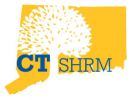Event Details
ADDRESSING IMPLICIT BIAS IN THE WORKPLACE
| Date: | July 16, 2020, 12:00pm |
| Organizer: | SMA |
| Price: | Please see link |
| Event Type: | Webinar |
| iCal link | Add to Calendar |
ADDRESSING IMPLICIT BIAS IN THE WORKPLACE
Staffing Management Association would like to invite you to an exciting webinar hosted by Ken Barone, Project Manager at Central Connecticut State University.
Why do we stereotype people we don’t even know? Is it possibly we are acting with prejudice without knowing it? Is bias bad? Learning the science behind bias is key to understanding how to recognize it and combat it in the workplace.
Join us on Thursday July 16 for an informative discussion with Ken Barone. This highly interactive webinar will leave you with a greater understanding of bias, with tools and tips that you can bring back to your workplace and share with your team.
SPECIAL OFFER!
SMA is offering this webinar FREE to current SMA members. Not a current member? Join or renew your membership now ($60) and you can enjoy this complimentary webinar on us! Great news! ALL SMA webinars from now through November 30 are included in the $60 membership - no additional fees!
In this heavily participatory workshop you will explore implicit biases and how they impact your community, work environment and race relations. Even if we are consciously committed to fairness and equality and deliberately work to behave without prejudice, we can still possess hidden negative prejudices and stereotypes. We will discuss how implicit bias can be both good and bad. Implicit bias will always exist, but we can and should be committed to continuing to become more aware of their impact.
EVENT DETAILS:
Date: July 16, 2020
Time: 12:00 Noon to 1:00 PM
Phone Number: will be emailed to those that register
Current SMA Member: Complimentary
Guest and Future Members: $35.00
EVENT HOST:
 Ken Barone is currently a Project Manager with the Institute for Municipal and Regional Policy (IMRP) at Central Connecticut State University (CCSU). Since 2012, Ken has managed the Connecticut Racial Profiling Prohibition Project (CTRP3). This project works to implement the state of Connecticut's Alvin W. Penn Racial Profiling law. The Alvin W. Penn law requires law enforcement agencies to collect information on traffic stops and report that information to CCSU. Ken is responsible for coordinating data collection and submission from 106 law enforcement agencies. He works with the Connecticut Data Collaborative to make the data available to the public through an online data portal. He has co-authored three reports analyzing municipal and state police data for evidence of discrimination. In addition, he is responsible for staffing the Connecticut Racial Profiling Prohibition Advisory Board, three subcommittees and is the legislative liaison for the project with the Connecticut General Assembly. Ken is also a certified Department of Justice Community Oriented Policing Services "Fair and Impartial Police" trainer. He has trained over 800 law enforcement officers since 2014.
Ken Barone is currently a Project Manager with the Institute for Municipal and Regional Policy (IMRP) at Central Connecticut State University (CCSU). Since 2012, Ken has managed the Connecticut Racial Profiling Prohibition Project (CTRP3). This project works to implement the state of Connecticut's Alvin W. Penn Racial Profiling law. The Alvin W. Penn law requires law enforcement agencies to collect information on traffic stops and report that information to CCSU. Ken is responsible for coordinating data collection and submission from 106 law enforcement agencies. He works with the Connecticut Data Collaborative to make the data available to the public through an online data portal. He has co-authored three reports analyzing municipal and state police data for evidence of discrimination. In addition, he is responsible for staffing the Connecticut Racial Profiling Prohibition Advisory Board, three subcommittees and is the legislative liaison for the project with the Connecticut General Assembly. Ken is also a certified Department of Justice Community Oriented Policing Services "Fair and Impartial Police" trainer. He has trained over 800 law enforcement officers since 2014.
Ken has served as a project consultant in California, Oregon, and Rhode Island on the implementation of their statewide traffic stop data collection programs. This includes helping states design electronic data collection system, develop analytical tools for identifying racial disparities in traffic stop data, and implementing training programs to address implicit bias in policing.
In addition, Ken also manages the Connecticut law that requires the collection and analysis of incidents involving electronic defense weapons. Ken co-authored a 2016 report on the use of electronic defense weapons by local and state police. He also co-authored a report on the regulation of transportation network companies in Connecticut, and a report on the Connecticut law to raise the age of juvenile offenders to 18. He has provided project assistance to the Juvenile Jurisdiction Policy and Operations Coordinating Council, the Connecticut Re-entry Roundtable Collaborative, and the Institute's Children of Incarcerated Parent's initiative.




